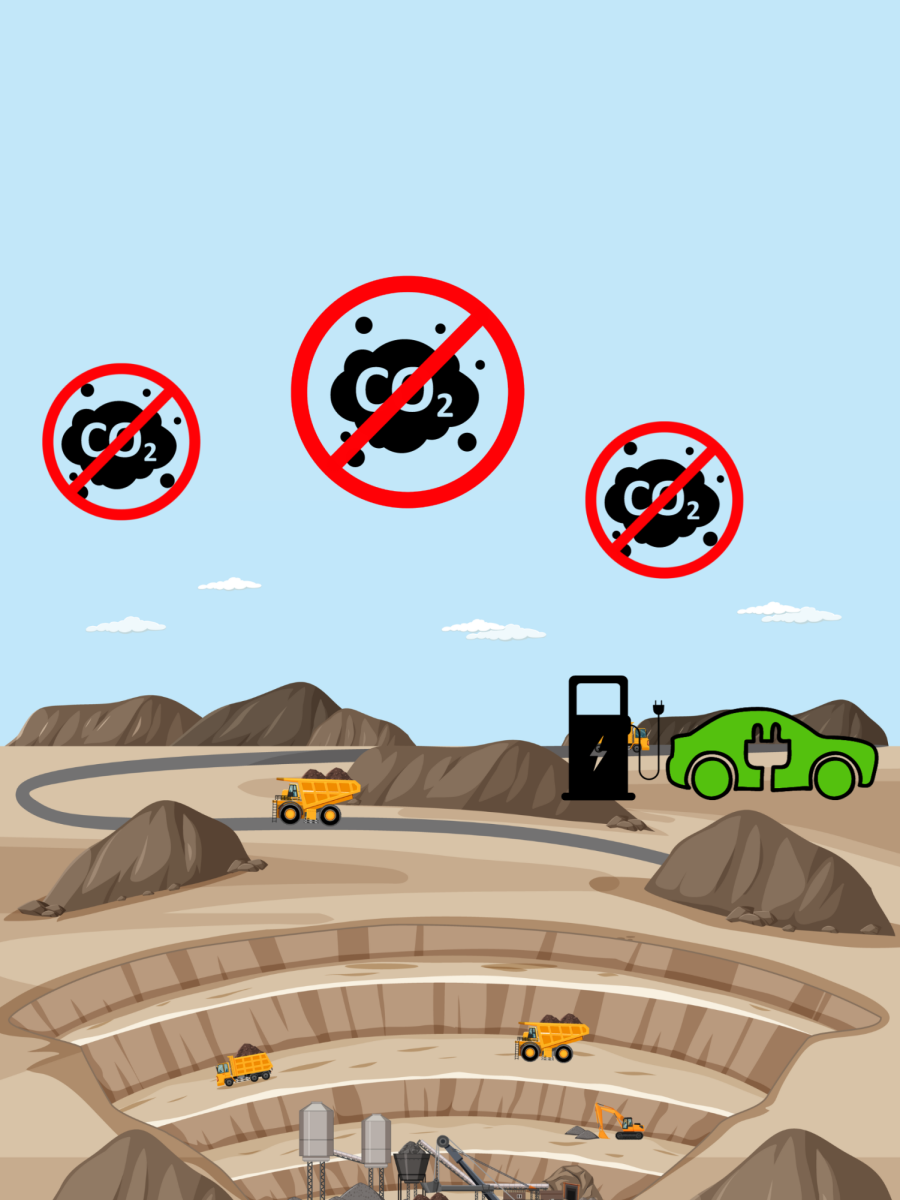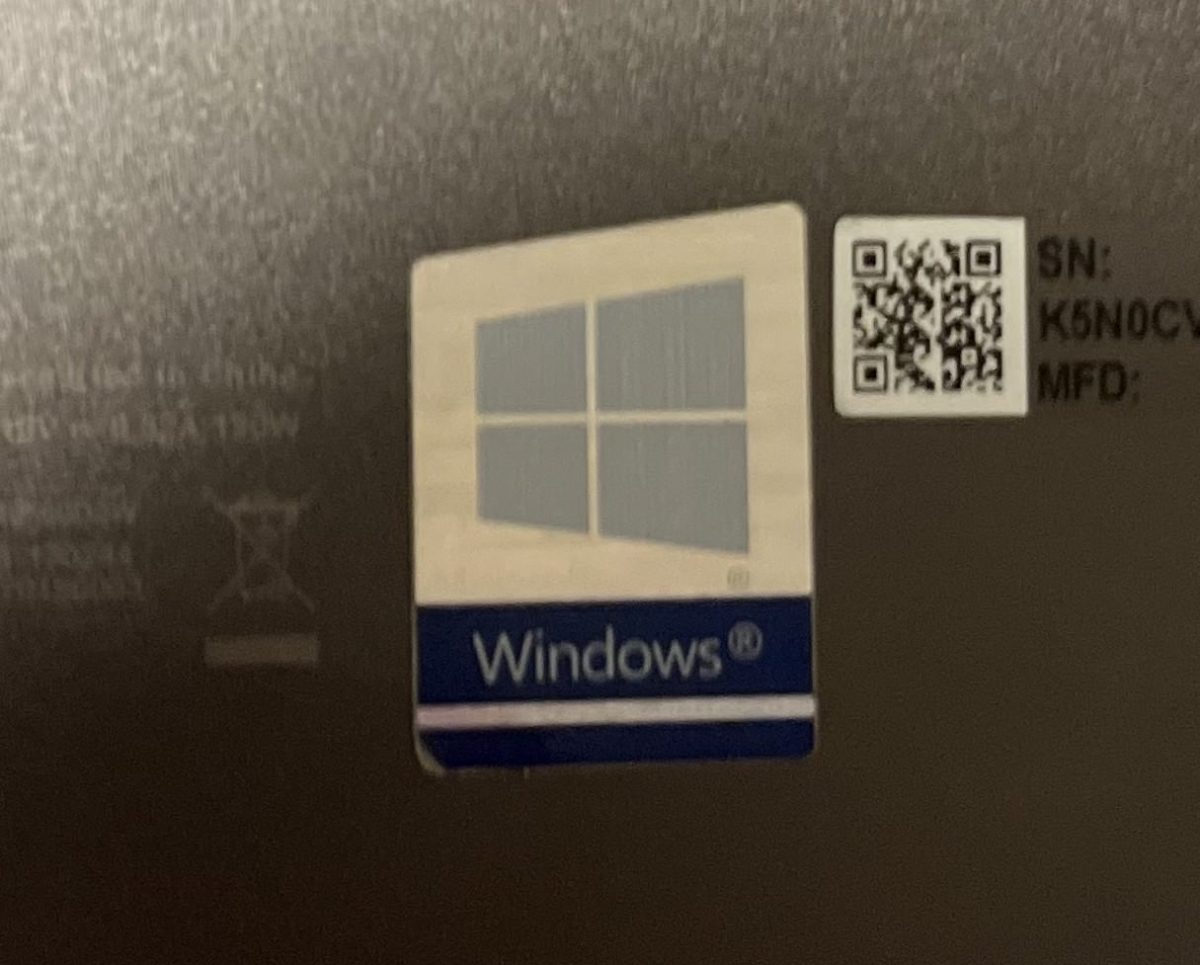Continuous burning of fossil fuels, environmental pollution, and harsh tactics used to obtain natural resources may lead to a self-inflicted extinction of the human race. This is why the United States is pushing for net zero emissions by the year 2050, and with ExxonMobil’s plans for a new lithium well the nation will be taking a big step in that direction.
Lithium is a non-renewable resource that is a key component in making renewable energy possible. Lithium is used to make batteries which are capable of storing energy for things like electric vehicles. With the growing appeal for electrification, demand for lithium is expected to quadruple by 2030.
Lithium extraction is currently only tangible from hard-rock ores and continental brine. The methods used to obtain it aren’t effective and can cause serious damage to the environment.
Senior Jaydon Kachappilly felt the current lithium extraction methods go against the idea of sustainability. “I know lithium can have great benefits in getting the nation closer to achieving net zero emissions, but I don’t think it’s worth it if you do just as much damage as you do good in the process of obtaining the resource,” he stated.
Lithium mining from hard-rock ores takes a lot of time and money. There is also the possibility of a leak which can lead to the contamination of waterways, which is what happened with the Ganzizhou Rongda Lithium mine in Tibet.
Extraction of Lithium from continental brine relies on open air evaporation to concentrate the brine. Large sums of water, 100–800 m3 per tonne of lithium carbonate, are lost to evaporation, making the sustainability of this process questionable. Additionally, this process takes 12 to 24 months, making it unresponsive to changes in demand.
Fortunately, ExxonMobil plans to build a new Lithium well in south Arkansas on the 120,000 gross acres of land they acquired in early 2023. This lithium well will differ from the ways lithium was previously obtained because it will use direct lithium extraction (DLE) technology and re-inject remaining brine into the ground.
Kachappilly sees DLE as a way to truly reap the benefits of lithium. “DLE technology will allow the nation to truly be able to gain the full benefits of lithium with minimum drawbacks. In my eyes, this technology is what will actually make lithium an asset,” said Jaydon.
DLE will allow for onsite lithium to battery-grade material conversion. With the re-injection of excess brine, water wastage will be minimized. Additionally, DLE produces fewer carbon emissions than previous lithium mining techniques and requires less land.
The promise of a lithium well not only supports ExxonMobil’s plan of becoming a leading producer of lithium but will also support Americans in the workforce. The lithium well will require workers, guaranteeing high-paying jobs for the people of Arkansas.
Not only will this project supply more jobs, but it will enhance North American energy production. It will reduce the emissions associated with transportation by creating an increased lithium supply for electric vehicles, furthering the US net zero emission goal.
Junior Connor Vandernat looked at the promise of new jobs in a positive light. “The creation of new high-paying jobs will only cater more attention to this line of work. As a result, lithium extraction technology will only advance creating a better future with less emissions,” he stated.
ExxonMobil plans to begin lithium mining by 2027. The company aims to produce enough lithium for over a million electric vehicles by the year 2030, with hopes of eventually producing lithium globally.



















Srujan Nuthula • Dec 3, 2023 at 11:45 pm
I think that Lithium definitely has some benefits but extracting it can negatively effect the environment.